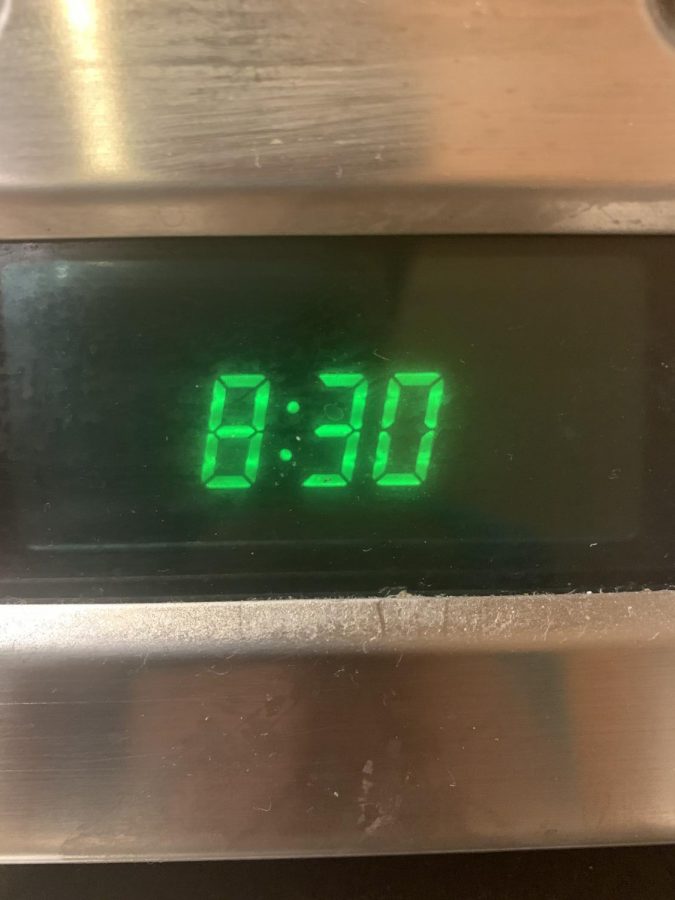Students and Faculty Reflect on Later Start Times: Harmful or Helpful?
The new legislation passed in California would change start times for high schools. Students and faculty are still processing the implications of this bill.
A recent bill signed into law by Governor Gavin Newsom mandates start times of no earlier than 8:30 AM for high schools. With recent studies finding that teenagers’ brains do not reach full function until later in the day, these later start times were meant to address the chronic sleep-deprivation and exhaustion within students. But while the good intentions are there, many negative consequences may come about due to this new law.
While many students may be excited to start school thirty minutes later than usual, a later start time would also mean a later end time for school. Simply put, an 8:30 AM start time would also mean a 4:00 PM end time, something that many students would not be happy with. Students who work after-school jobs, have sports practice after school, or have other activities or responsibilities will find their schedules changed because of the later end times.
For outdoor sports, later practices mean less time due to less light, and colder training conditions. For a sport like tennis, a lack of lights means that practice is constrained by the sunlight. If it starts thirty minutes later, the practice wouldn’t last an extra thirty minutes because practice will be stopped by the sunset. For many sports, this means less time to train and prepare for games or meets. For a runner like Ananya Singh, grade 11, “darkness would be terrible to run in and impact practices.” While later school practices might not be that impacted or important in the grand scheme of things, the impact on afterschool jobs and employments would be immense.
As City Councilmember and Hub Coordinator, Jean Josey stated, “If I’m managing a McDonald’s or other business in Dublin and students don’t get out until 4 and get to work until 4:15, I might decide to not hire them because they won’t be able to work optimal hours.” For many students, a later end time may mean worse job prospects or even a negative effect on current jobs. Sophomore Sabrina Cox said that a later school end time would “definitely affect my job,” adding that her hours right now sometimes require her to leave during the sixth period. Since so many students in Dublin High work jobs after school, a later start time would be detrimental to many of their schedules.
Another perspective that has to be taken into account are those of the teachers. Many teachers have young children who they need care for. Mrs. Lawson, an AP Calculus teacher at Dublin High, brought up the fact that she “needs the school’s schedule to line up with her son’s schedule” because she needs to pick him after school. Since middle schools are subject to different start times, this change will negatively affect many teachers and staff who have other obligations after 3:27 pm. This doesn’t only apply to teachers, some students also need to care for or pick up younger siblings from middle or elementary schools, and if they get out later, they would not be able to fulfill that task. This may mean higher childcare costs or needing to find different arrangements from the families.
But, there is still a lot of support for this new legislation. Juniors Gaurav Agarwal and Subash Shibu both agree that they would rather have a later start time even if it meant they got out of school later. As Subash stated, “I prefer the later start so I have more time to do homework in the morning.” While some doubt that this would actually lead to students getting more sleep as they would just sleep later, Josey believes otherwise. Based on her experience raising her kids, she hypothesized that teenagers would still sleep at the same time, reaping the benefits of more sleep and better activating their brains. Josey believes that in the long term, a later start time would be greatly beneficial to all students.
While this new legislation won’t kick into effect immediately, it’s important to see the benefits as well as the possible consequences of this legislation. While the health benefits are certainly there, the effects it’ll have on other obligations outside of school may be detrimental to a student’s overall well-being. While many may oppose it now, change is hard to accomplish, and this is just one of the steps that Dublin may need to take in order to create a better learning environment for students.
Your donation will support the student journalists of Dublin High School. Your contribution will allow us to purchase equipment and cover our annual website hosting costs.

Kyle is a Junior at Dublin High and the Community Editor for the Dublin Shield. Outside of Journalism, Kyle enjoys playing Quizbowl (Jeopardy with teams),...



































